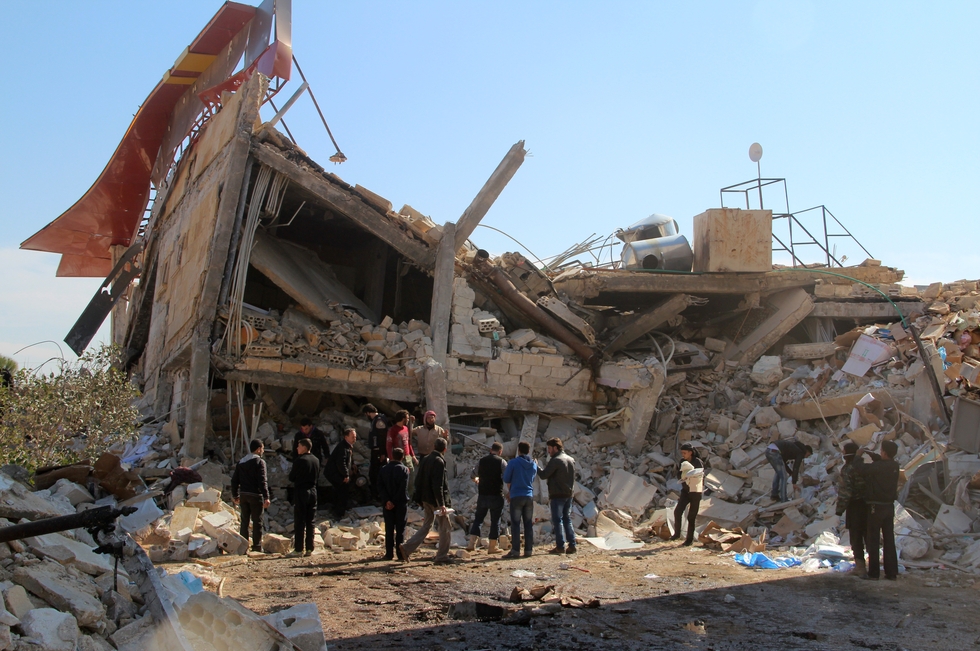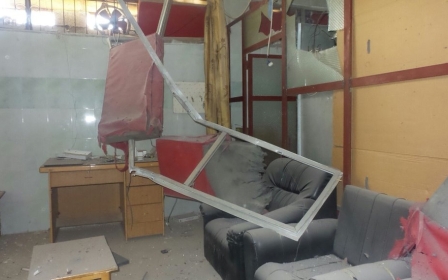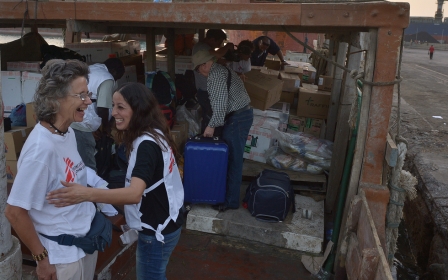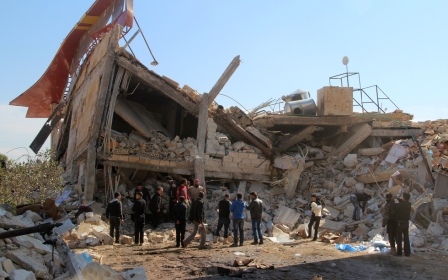Syrian hospitals deliberately attacked as method of war: MSF

A total of 63 health facilities in Syria supported by the Doctors Without Borders (MSF) were hit by air attacks in 2015 and a number of them were deliberately targeted as a method of war, the group has said.
“In 2015, 94 aerial and shelling attacks hit 63 MSF‐supported facilities... in 12 cases causing the total destruction of the facility,” the medical NGO’s report said, adding that 81 medical staff were killed or wounded.
MSF said it was often forced to operate secretly as the Syrian government had declared their facilities in rebel-held areas illegal.
“The number of MSF‐supported facilities is only a fraction of all makeshift and official medical facilities in Syria, so this must be considered as a relatively small sample of the true extent of war damage and destruction done to the medical infrastructure and to medical personnel in Syria,” it said.
The report concluded that a number of nations and armed groups involved in the Syrian conflict had violated international humanitarian law by disregarding UN resolutions that ban indiscriminate attacks against civilians and civilian infrastructure.
“MSF specifically appeals to the four permanent members of the UN Security Council currently participating in the conflict (that is, the US, Russia, France and the UK) to respect their own resolutions and assure that their own military, as well as their military allies, start to implement the resolutions for which they unanimously voted.”
The report expressed concern that 30 to 40 percent of war victims in Syria in 2015 were women and children, most of them civilians – which the report said indicates that civilian areas were hit consistently throughout the year.
Healthcare facilities directly targeted
MSF’s wide-ranging report also revealed that the Syrian government had declared medical facilities set up in rebel-held territory to be illegal.
As a result, MSF said it was forced to work secretly in those areas.
“The majority of the MSF‐supported clinics have been forced to operate clandestinely in unmarked and undeclared locations, and without any access to medicines and medical supplies provided through the Syrian health system,” the report said.
In addition, a few well-documented aerial attacks indicated to MSF that bombs had not merely hit the centres indirectly as collateral damage, but had likely targeted the facilities.
“Especially concerning are the four instances reported by MSF‐supported clinics of the suspected use of the ‘double‐tap’ strategy” in which a location is attacked twice to maximise the number of casualties, the report said.
“This indicates that in some instances the attacks go beyond indiscriminate violence, using targeted attacks against rescue workers – including medical responders – as a method of war.”
Attacks on healthcare centres ‘must cease’
The NGO called on all parties to cease attacks on all civilian targets, but especially medical facilities.
“MSF specifically calls for the protection and respect of the medical mission, and for all attacks on medical facilities, staff and emergency response teams to cease.”
The attacks on medical facilities, however, have continued in 2016.
Less than two weeks ago, at least three people were killed and six wounded in an air raid on a field hospital in southern Syria.
"The strike on Tafas field hospital, some 12km from the Jordanian border, took place on the night of February 5,” MSF said at the time.
It added that the number of medical facilities had been targeted increasingly over the past two months.
New MEE newsletter: Jerusalem Dispatch
Sign up to get the latest insights and analysis on Israel-Palestine, alongside Turkey Unpacked and other MEE newsletters
Middle East Eye delivers independent and unrivalled coverage and analysis of the Middle East, North Africa and beyond. To learn more about republishing this content and the associated fees, please fill out this form. More about MEE can be found here.




